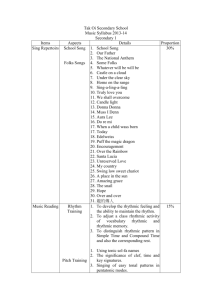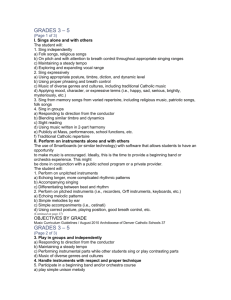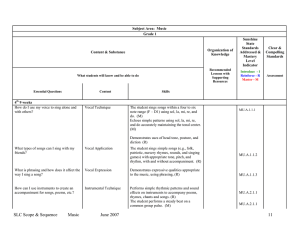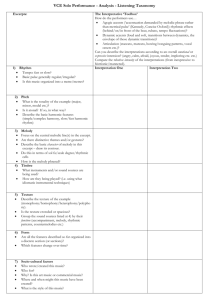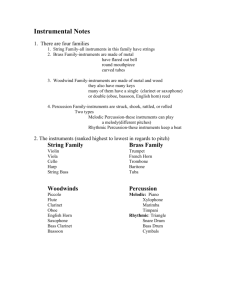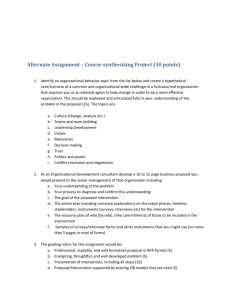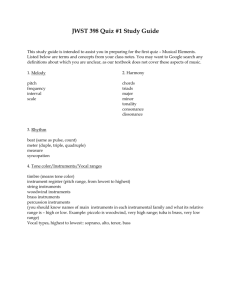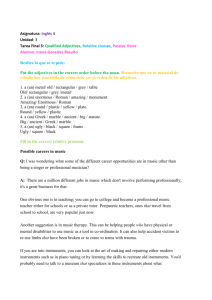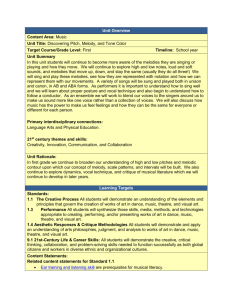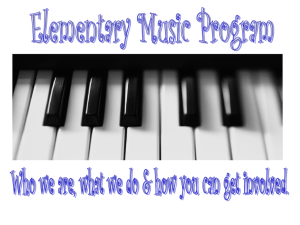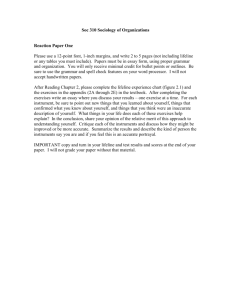Music_SYL_S1_12-13 - Tak Oi Secondary School
advertisement
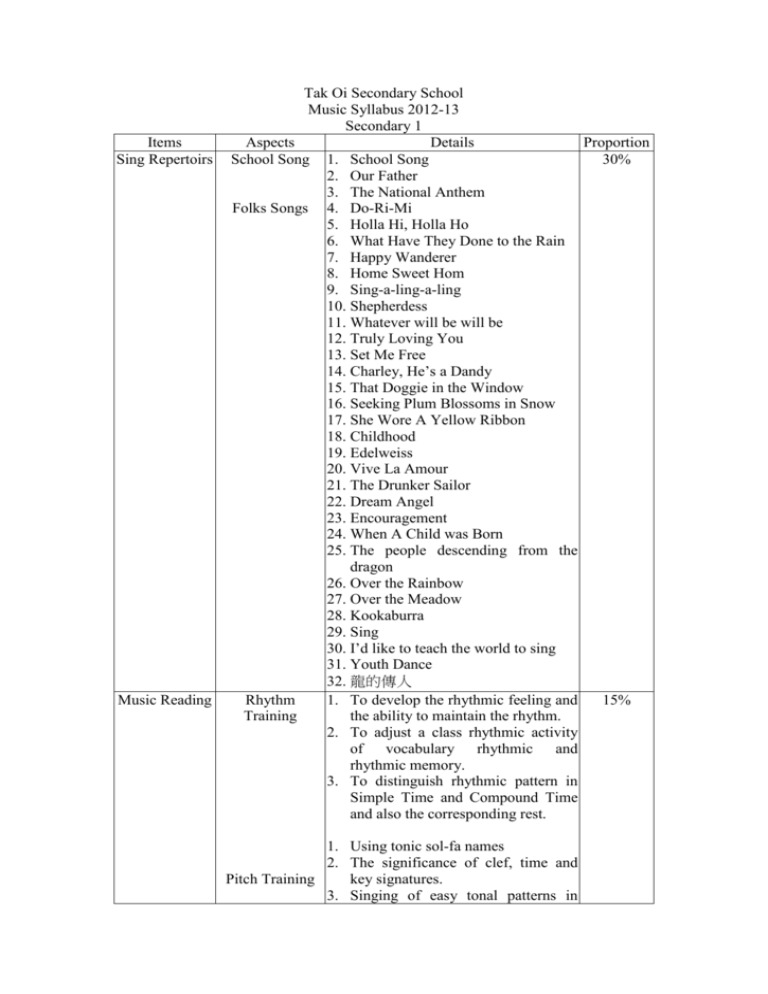
Items Sing Repertoirs Music Reading Tak Oi Secondary School Music Syllabus 2012-13 Secondary 1 Aspects Details Proportion School Song 1. School Song 30% 2. Our Father 3. The National Anthem Folks Songs 4. Do-Ri-Mi 5. Holla Hi, Holla Ho 6. What Have They Done to the Rain 7. Happy Wanderer 8. Home Sweet Hom 9. Sing-a-ling-a-ling 10. Shepherdess 11. Whatever will be will be 12. Truly Loving You 13. Set Me Free 14. Charley, He’s a Dandy 15. That Doggie in the Window 16. Seeking Plum Blossoms in Snow 17. She Wore A Yellow Ribbon 18. Childhood 19. Edelweiss 20. Vive La Amour 21. The Drunker Sailor 22. Dream Angel 23. Encouragement 24. When A Child was Born 25. The people descending from the dragon 26. Over the Rainbow 27. Over the Meadow 28. Kookaburra 29. Sing 30. I’d like to teach the world to sing 31. Youth Dance 32. 龍的傳人 Rhythm 1. To develop the rhythmic feeling and 15% Training the ability to maintain the rhythm. 2. To adjust a class rhythmic activity of vocabulary rhythmic and rhythmic memory. 3. To distinguish rhythmic pattern in Simple Time and Compound Time and also the corresponding rest. 1. Using tonic sol-fa names 2. The significance of clef, time and Pitch Training key signatures. 3. Singing of easy tonal patterns in pentatonic modes. Music in the Western tradition and Listening Sight Reading 1. To develop pitch awareness and discrimination. 2. The significance of clef, time and key signatures. 3. The structure of major scale. 4. Simple sight-singing exercises related to known songs. 5. Sight-sing exercises include easy stepwise exercises and leaps within the tonic chord in G, C, F, D major. Instruments 1. General introduction to the main orchestral families and their instruments 2. Exploring and identifying the tone color of the instruments of the orchestra. 25% Music in the Chinese tradition and listening Recorder Creative Programme Music 1. Recognition of simple themes. 2. Remember musical ideas. 3. Awareness of the structure of music: phrase and sentence, simple binary and ternary forms. Vocal Music 1. Classification of voices: Soprano, Alto, Tenor, Bass. 2. Examples of vocal music: Solo Singing, Ensemble, Choir arrangement, Combination of instrumental and choral works. Instrumental Music 1. 2. 3. 4. Wind instruments Bowed string instruments Plucked string instruments Percussion Playing simple Through which students can learn to melody, a play, to read and write music, to use counter melody chords and to compose tunes. or fragments of the tune at appropriate Creative Sound Project 20% 10%
